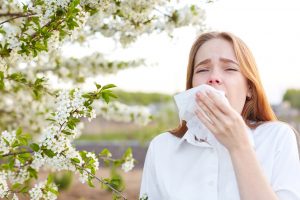
For me, it was an onslaught of sneezes, a runny nose, and watery eyes. Allergy season showed up in a hurry and hit hard. For those of you who’ve been spared thus far: it is coming.
Experts suggest climate change has extended allergy season and made it more severe. The best way to limit the effects might be to get ahead of them.
Pollen is showing up earlier in the year, being spread from trees, grass, and weeds. Levels are highest from trees in the spring, grass in the summer, and weeds in the fall. But remember, there will be variations based on where you live.
The American College of Allergy, Asthma, and Immunology has suggested the following strategies for staying on top of allergy symptoms:
- Keep windows closed during pollen season, particularly during the day. If you have air conditioning, use it.
- Learn which pollens you are most sensitive to and follow pollen particle counts. Weather apps often supply pollen and air quality counts.
- Shower, wash your hair, and change your clothing after you’ve been outdoors.
- Wear sunglasses and hats to help reduce the risk of pollen contacting your hair and eyes. Your COVID face covering may also help reduce the risk of pollen contact.
If you’ve noticed allergies hitting earlier and harder each year, you’re probably correct. Try to fight back by taking medications and using the tips mentioned above. If you are still having trouble with allergies, speak to an allergist.
Early severe allergic reactions may be even more startling this year because of the COVID pandemic. The symptoms, however, are different. If you’re noticing plenty of sneezing, a runny nose, or itchy, watery eyes, it’s likely allergies.
A fever, muscle aches, or upset stomach may indicate COVID, and a test is advised.
Certain symptoms, like taste or smell loss, may result from both allergies of COVID-19, so pay attention to any other symptoms.